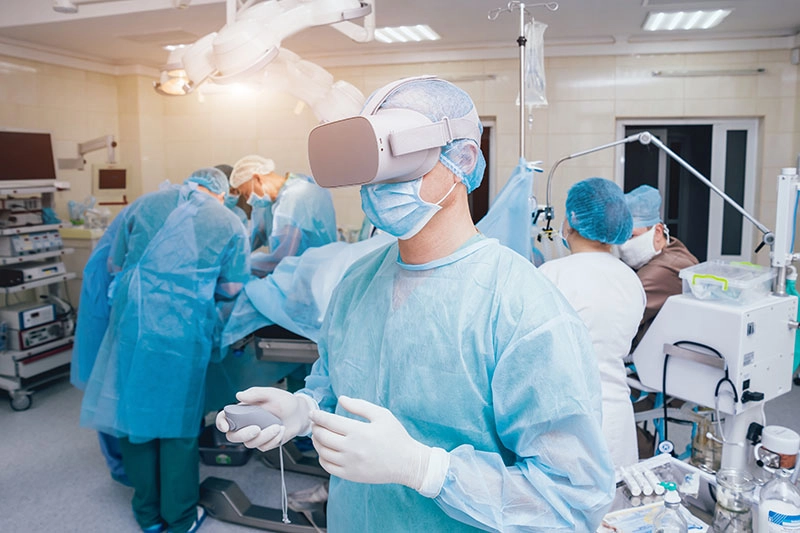In an era where technology evolves at an unprecedented pace, the healthcare industry stands on the brink of a major transformation thanks to the advent of artificial intelligence (AI) and machine learning (ML). These technologies, once relegated to the realm of science fiction, are now pivotal in reshaping healthcare delivery, enhancing patient outcomes, and optimizing operational efficiency.
AI and ML are branches of computer science that mimic the problem-solving and decision-making capabilities of the human mind. In healthcare, they process vast amounts of data to identify patterns, make predictions, and recommend actions, thus playing a critical role in diagnostics, treatment planning, patient care, and hospital management.
Key Contributions of AI and ML in Healthcare:
- Diagnostics and Imaging: AI algorithms analyze images, detect abnormalities, and assist in early diagnosis of diseases such as cancer, often with higher accuracy and speed than human practitioners.
- Personalized Medicine: ML leverages patient data to tailor treatments to individual genetic profiles, improving efficacy and reducing side effects.
- Predictive Analytics: By analyzing healthcare trends and patient records, AI predicts disease outbreaks, patient admissions, and potential complications, enabling proactive care.
- Operational Efficiency: From scheduling appointments to managing supply chains, AI streamlines administrative tasks, allowing healthcare providers to focus on patient care.
The Impact on Patient Outcomes and Healthcare Efficiency
The integration of AI and ML into healthcare automation heralds a new age of precision medicine and efficient care delivery. Patients benefit from faster, more accurate diagnoses, personalized treatment plans, and reduced hospital stays. For healthcare providers, these technologies offer tools to understand disease mechanisms better, predict treatment outcomes, and manage resources effectively.
Benefits for Patients and Providers:
- Improved Accuracy: AI-driven diagnostics reduce human error, leading to more accurate and timely diagnoses.
- Enhanced Patient Experience: Automated systems streamline scheduling, reminders, and follow-ups, improving patient engagement and satisfaction.
- Cost Reduction: By optimizing operations and reducing unnecessary procedures, AI and ML can significantly lower healthcare costs.
Navigating Challenges and Ethical Considerations
Despite the promising benefits, the integration of AI and ML in healthcare is not without challenges. Data privacy, security concerns, and the need for robust regulatory frameworks are critical issues that must be addressed. Additionally, the ethical implications of AI decision-making in patient care, such as biases in data and algorithms, require careful consideration and transparent governance.
Next Steps for Healthcare Providers:
Healthcare institutions looking to adopt AI and ML technologies should consider the following action steps:
- Invest in Training: Equip staff with the knowledge and skills to effectively leverage AI and ML tools.
- Prioritize Data Security: Implement stringent data protection measures to safeguard patient information.
- Collaborate and Innovate: Engage in partnerships with tech companies and participate in innovation networks to stay at the forefront of technological advancements.
Embracing the Future of Healthcare
As AI and ML continue to evolve, their potential to transform healthcare is limitless. By embracing these technologies, healthcare providers can deliver more personalized, efficient, and effective care, ultimately improving the quality of life for patients worldwide. The journey towards fully integrated AI-driven healthcare systems is complex and fraught with challenges, but the rewards—enhanced patient outcomes and streamlined operations—make it a worthwhile endeavor.
For healthcare professionals and institutions, the time to act is now. By understanding the capabilities, benefits, and considerations of AI and ML in healthcare, stakeholders can take the necessary steps to implement these technologies, ensuring they remain competitive in a rapidly changing landscape. As we delve deeper into the possibilities, the next articles in this series will explore real-world applications, challenges, future trends, and preparation strategies for AI and ML integration in healthcare, guiding you through the intricacies of this digital revolution.
